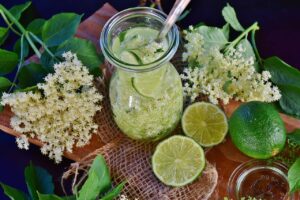How does our body fight off infection? This is a great mystery to many people, but it sure is worthwhile knowing about, especially now, with all the lock- downs and restrictions going on around the world. So it is really important to learn about how your body really operates, so you can make informed decisions about your health. Luckily, everybody has their own natural or innate immune system, that works to fight off bacterial, viral and fungi infections that can occur throughout the body.
In your blood there are a number of white cells that function solely to combat different types of pathogens or organisms. These white cells can fight diseases or neutralize certain types of body conditions such as allergies. These white cells are lymphocytes, monocytes, neutrophils, basophils and eosinophils. Monocytes are like the Pacman – they surround and engulf certain types of pathogens like bacteria and help remove them from the body. Lymphocytes on the other hand are white cells that help in fighting viral infections. All the white cells have different purposes. In simple general terms, neutrophils fight bacteria and eosinophils respond to allergens or allergies.
The first line of defense against these invading pathogens ie. viruses and bacteria, is the nose hairs and the tonsils in the throat. If the pathogens gets past here then more complications can occur. Simple ways or home remedies to fight off infection at this early stage is to gargle salty water or use nasal sprays regularly, especially when you get a sore throat etc. The salty water or eucalyptus nasal sprays are thought to help kill the infecting microorganisms.
But if the infection spreads further throughout the body such as into the lungs, then other immune mechanisms come into play and this is when antibodies and other killer cells are produced and released into the blood stream. For a more in depth explanation about our own Natural Immune System and how it all works, be sure to check out the information below.
Our Body’s Natural Defense System?
Our body is equipped with an advanced and sophisticated defense system to protect us from harmful invaders like viruses and bacteria. While modern medicine plays a crucial role, it’s also important to recognize the power of the body’s natural defense mechanisms and the role that lifestyle and natural remedies can play in strengthening our immune response. Let’s explore how the immune system works and the natural ways we can support it.
-
The Immune System: Our First Line of Defense
The immune system is a complex network of organs, tissues, cells, and molecules that work together to defend against harmful pathogens, such as viruses, bacteria, and fungi. It’s divided into two main types of immunity:
- Innate Immunity (Non-specific): This is the body’s first line of defense, acting as a rapid and general response to any pathogen. It includes physical barriers like the skin, mucous membranes, and natural secretions (such as stomach acid and enzymes in saliva) that prevent pathogens from entering the body. Once pathogens bypass these barriers, innate immune cells, such as phagocytes (neutrophils, macrophages), quickly respond to neutralize them.
- Adaptive Immunity (Specific): The adaptive immune system targets specific pathogens with a highly refined and tailored response. This system is activated after the initial response of innate immunity and involves the action of T cells and B cells.
- T cells can directly attack infected cells, while B cells produce antibodies that bind to pathogens, marking them for destruction. The adaptive immune system also has a memory function, which allows it to remember previously encountered pathogens and respond faster in the future.
2. How the Body Responds to Viral Infections
Viruses are tricky invaders that require a host cell to reproduce. When a virus enters the body, the immune system initiates a multi-layered response:
- Detection of Viral Invasion: Cells recognize viral infections through pattern recognition receptors (PRRs) on the surface of immune cells. Dendritic cells play a key role by capturing and presenting viral antigens to other immune cells, thus alerting the immune system.
- Interferons and Inflammatory Response: When a cell is infected by a virus, it releases interferons, signaling proteins that protect nearby cells from being infected and activating natural killer (NK) cells to destroy infected cells. The release of interferons also ramps up the overall immune response.
- T Cells: Cytotoxic T cells play a pivotal role in viral defense by recognizing and killing infected cells. Helper T cells release cytokines, which activate other immune cells and help B cells produce antibodies.
- Antibodies: B cells produce antibodies that specifically target and neutralize viruses. These antibodies prevent the virus from entering healthy cells, making it easier for the immune system to eliminate the pathogen. Once produced, antibodies also remain in the body, providing immunity against future infections from the same virus.
3.How the Body Fights Bacterial Infections
Bacteria, unlike viruses, are single-celled organisms that can multiply in our body and cause disease. The immune system’s response to bacteria is equally sophisticated:
- Phagocytosis: The process of phagocytosis involves immune cells like macrophages and neutrophils, which engulf and digest bacteria. These cells are guided to the site of infection by chemical signals released by infected tissues.
- Inflammation: Inflammation is a critical immune response that serves to contain and neutralize bacterial infections. It involves the dilation of blood vessels to increase blood flow, bringing more immune cells to the site of infection. It also helps to isolate the infection, preventing it from spreading.
- Complement System: The complement system consists of a series of proteins that circulate in the blood. When activated, these proteins help destroy bacterial cells by forming pores in their membranes or by marking them for destruction by other immune cells.
- Antibodies: Just as with viral infections, B cells produce antibodies against bacterial invaders. These antibodies bind to bacterial antigens, preventing the bacteria from causing harm and marking them for destruction.
4. Supporting the Immune System with Natural Remedies
In addition to the body’s internal immune defenses, natural remedies and lifestyle factors can help support immune function. Here are some of the most well-known natural substances and practices that enhance immunity:
Echinacea
- Benefits: Echinacea has long been used in herbal medicine for its immune-boosting properties. It is believed to increase the number of white blood cells (particularly T cells) and stimulate the production of interferons, helping the body fight off infections faster.
- Usage: Echinacea is commonly taken as a tea, tincture, or supplement. It’s especially popular during cold and flu season to shorten the duration and severity of symptoms.

Honey and ginger


Refreshing elderberry drink
Elderberry
- Benefits: Elderberry is known for its ability to reduce the severity and duration of flu symptoms. Its active compounds, such as anthocyanins, have antiviral properties that can prevent viruses from entering cells.
- Usage: Elderberry is often consumed as syrup, capsules, or gummies. Research suggests that it can be most effective when taken at the first sign of illness.
Garlic
- Benefits: Garlic contains sulfur compounds like allicin, which have antibacterial, antiviral, and antifungal properties. Garlic boosts the activity of macrophages and increases the production of white blood cells, which play a key role in fighting infections.
- Usage: Raw garlic can be consumed directly, added to meals, or taken as a supplement. To maximize its benefits, garlic should be crushed or chopped and left to sit for a few minutes before consumption.
Vitamin C
- Benefits: Vitamin C is well-known for its role in supporting the immune system. It promotes the production of white blood cells, enhances the function of phagocytes, and improves the absorption of iron, which is essential for immune cell production.
- Usage: Vitamin C is abundant in citrus fruits, strawberries, bell peppers, and broccoli. It can also be taken as a supplement to boost immune function, especially during times of stress or illness.
Probiotics
- Benefits: A healthy gut is essential for immune function, as 70-80% of the immune system resides in the gut. Probiotics are beneficial bacteria that support gut health by balancing the microbiome and preventing harmful bacteria from taking over.
- Usage: Probiotics can be found in fermented foods like yogurt, kefir, sauerkraut, kimchi, and miso, or taken in supplement form.
Zinc
- Benefits: Zinc plays a crucial role in the development and function of immune cells. It has been shown to reduce the duration of cold symptoms and improve the immune system’s ability to respond to pathogens.
- Usage: Zinc can be found in foods like oysters, beef, pumpkin seeds, and lentils. Supplements are also available for those with low zinc levels.
Honey and Ginger
- Benefits: Honey has natural antimicrobial properties, helping to soothe sore throats and kill bacteria, while ginger is an anti-inflammatory that can boost the immune system by promoting circulation and helping to reduce fever.
- Usage: Honey can be consumed by the spoonful or added to tea. Fresh ginger can be steeped in hot water or added to meals to support the immune system.
- How Lifestyle Affects Immune Function
A healthy lifestyle is key to maintaining a strong immune system. Here are some important factors to consider:
- Adequate Sleep: Sleep is essential for optimal immune function. During sleep, the body repairs and regenerates immune cells. Chronic sleep deprivation can suppress the immune system, making it more difficult to fight off infections.
- Physical Activity: Regular moderate exercise has been shown to improve circulation, allowing immune cells to travel throughout the body more efficiently. Exercise also promotes the production of anti-inflammatory cytokines, which help regulate the immune response.
- Stress Management: Chronic stress triggers the release of cortisol, a hormone that suppresses immune function. Practices such as mindfulness, meditation, and yoga help reduce stress and support a balanced immune response.
- Hydration: Proper hydration helps maintain the mucous membranes that line our respiratory system, providing a first line of defense against pathogens. Drinking plenty of water ensures that the immune system functions optimally.
-
Conclusion
Our body’s immune system is a powerful defense mechanism capable of fighting off viruses and bacteria. By understanding how this system works and supporting it with natural remedies and a healthy lifestyle, we can enhance our body’s ability to defend against infections. Whether through herbal supplements like echinacea and elderberry, nourishing our bodies with vitamins and minerals, or engaging in habits that promote overall health, we can give our immune system the tools it needs to keep us strong and protected.
So after learning all this information you may be wondering why we need to take vaccines and antibiotics when we have an inbuilt army of white soldiers to protect us? We were convinced many years ago that we had to protect the vulnerable in our society by ridding society of such diseases such as polio, tetanus and whooping cough. In this way we have prevented the out break of many of these dangerous diseases, but there is an old saying. Use it or lose it. Does this apply to our natural immune system? Has this barrage of vaccines and antibiotics caused us to have a less efficient immune system especially in these current times? This is for you to decide! Over the past decade or so, antibiotic resistant diseases have been on the increase due to overuse of antibiotics. Maybe it is time to boost both our general health and our immune system?
References and Further Reading
- National Institute of Allergy and Infectious Diseases (NIAID)
- Understanding the Immune System: How It Works
Website: www.niaid.nih.gov
This page provides a detailed overview of the immune system, explaining the different types of immunity and how the body fights infections.
- Understanding the Immune System: How It Works
- World Health Organization (WHO)
- Coronavirus Disease (COVID-19) Advice for the Public
Website: www.who.int
The WHO offers evidence-based guidelines on how vaccines and the immune system work to protect against infections, with particular emphasis on viral threats.
- Coronavirus Disease (COVID-19) Advice for the Public
- Mayo Clinic
- Immune System: Why It’s Important
Website: www.mayoclinic.org
This article explains the role of the immune system, how it works, and the factors that support its health, such as nutrition, sleep, and exercise.
- Immune System: Why It’s Important
- Journal of Immunology
- The Role of Innate Immunity in Host Defense
Article link: www.jimmunol.org
This peer-reviewed journal provides in-depth research articles about the latest developments in immune system research.
- The Role of Innate Immunity in Host Defense
- Harvard Health Publishing
- How to Strengthen Your Immune System
Website: www.health.harvard.edu
Harvard’s publication offers practical tips and advice on improving immune function through diet, exercise, and lifestyle changes.
- How to Strengthen Your Immune System
- National Center for Complementary and Integrative Health (NCCIH)
- Echinacea: In Depth
Website: nccih.nih.gov
A detailed overview of echinacea, one of the most widely used herbal supplements for immune support.
- Echinacea: In Depth
- PubMed Central (PMC)
- The Role of Zinc in the Immune System
Article link: https://www.ncbi.nlm.nih.gov
This research article explores the role of zinc in immune function, including its impact on viral and bacterial infections.
- The Role of Zinc in the Immune System
- WebMD
- The Power of Probiotics for Immune Health
Website: www.webmd.com
A practical guide on how probiotics benefit gut health and, in turn, the immune system.
- The Power of Probiotics for Immune Health
- NIH National Institute of Health (NIH)
- The Effects of Sleep on Immunity
Website: www.nih.gov
An article discussing the connection between sleep deprivation and a weakened immune response.
- The Effects of Sleep on Immunity
- American Journal of Clinical Nutrition
- Vitamin C and Immune Function
Article link: https://academic.oup.com
Research showing how Vitamin C helps in the prevention of infections and its effect on immune cell function.
